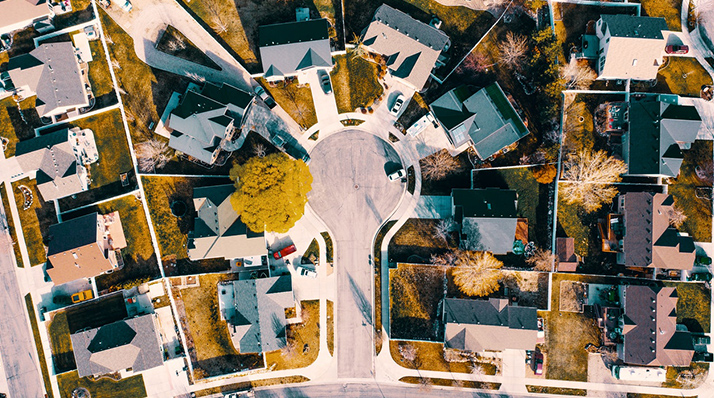Home Values Up 11.6% Over Last Year
Seemingly endless demand and low supply have driven record-breaking home value appreciation over the past year, Zillow’s latest Market Report shows. Data from April pushed the envelope even further: Annual home value growth for a typical U.S. home is 11.6%, the highest seen since 2005.
Today’s rapid rise in prices may recall that of the mid-2000s, stoking unfounded fears of another overheated market. Google searches for “housing bubble” reached their highest point in nearly three years in April. But unlike the run-up to the mortgage crisis, this market is built on strong fundamentals with long legs, said Zillow economist Jeff Tucker.
“Both of these hot markets saw extreme price appreciation in a relatively short period of time. But that’s where the similarities end,” Tucker said. “Unlike the combination of speculators and people spending beyond their means with non-traditional loans in 2004 and 2005, today’s homebuying demand is driven by well-qualified buyers locking in traditional, fixed-rate mortgages. Builders are firing on all cylinders to meet the excess demand brought by low mortgage rates and millions of Millennial buyers jockeying for limited homes, but after more than a decade of underbuilding, homes will remain scarce until existing homeowners feel more comfortable selling or prices rise enough to restore balance.”
This spring, homes are selling at record pace despite the enormous leaps in home values. Nationally, it typically only takes seven days after listing for a seller to accept an offer, while the Midwest markets of Kansas City, Columbus and Cincinnati are seeing listings disappear in just three days.
U.S. home values measured by Zillow’s Home Value Index (ZHVI) reached $281,370 in April. Monthly appreciation has been growing since May, and April’s 1.3% increase over March is the largest jump in Zillow data reaching back to 1996.
Sun Belt and Mountain West markets lead major metros in annual appreciation, notably Austin (25.5%), Phoenix (20.4%) and Salt Lake City (18.3%), though 39 of the top 50 metros are seeing double-digit increases over the year. Boise, Idaho, leads the top-100 metros with 32.5% annual value growth.
First-time buyer Tiauna Hansen and her fiancé, Tyler Hensley, estimate they placed offers on 15 homes before finally closing on a 2-bedroom, 1-bathroom house near Boise in April. The young couple had been under contract to purchase another home when the appraisal came back lower than their offer price and the deal fell through.
“We were so excited to buy our own home,” says Hansen. “We had already made plans to add on to that house and build a workshop, only to have to start our search all over again. But that experience ultimately left us more determined, and led us to the house we’re in now, which is perfect for us.”
The couple used an FHA loan and down payment assistance to purchase their new home at full asking price. Now they have plenty of room for their dog to roam, while they plan their wedding for next September.
The couple’s story will resonate with thousands of shoppers struggling in today’s market, but despite abundant stories of bidding wars, not every house is selling above list. Of all home sales closed in February (the last month with full data), 28.6% sold above their initial list price. That’s more than twice the share that sold above list in February last year, but it still means the other 71.4% sold at list price or below. More than half of homes sold above list price in four metros: San Francisco, San Jose, Seattle and Salt Lake City. Metros with the lowest share of homes sold above list price are Miami (11%), Orlando (13%) and Las Vegas (15%).
Inventory fell 1.4% month over month, continuing a trend of monthly drops that began in August. Available listings are now down 30.3% year over year. Making an aggressive or creative offer, mastering search technology and working with a knowledgeable local agent can help raise shoppers’ chances of success, according to a recent Zillow survey.
Zillow economists expect another year of staggering home value appreciation ahead of us, forecasting 11.8% growth through April 2022. Existing home sales in 2021 are predicted to be 10.3% higher than in 2020.
Rent growth is returning with a vengeance, with a 1.5% monthly spike that’s larger than any in Zillow records reaching back through 2014. Annual rent growth reached 3%, the largest year-over-year growth since March 2020, to put typical U.S. rent at $1,704 — $49 higher than last year.
Monthly rent growth was led by Sun Belt standouts Austin (2.9%), Memphis (2.5%), Tampa (2.4%) and Phoenix (2.4%), and monthly rent appreciation picked up pace or held steady in all but nine of the top 50 U.S. metros. April also marked the second or third month in a row for monthly rent growth in expensive coastal metros including San Francisco, New York, San Jose and Seattle, though none of those have returned to pre-pandemic levels.
Mortgage rates did not retreat to all-time lows in April, but they were close. Rates listed by third-party lenders on Zillow began April at a monthly high of 2.89%, dropped down to 2.66% on April 22, and ended at 2.71%. Zillow’s real-time mortgage rates are based on thousands of custom mortgage quotes submitted daily to anonymous borrowers on the Zillow Group Mortgages site by third-party lenders and reflect recent changes in the market.
AUTHOR: CPAPRACTICE ADVISOR
Call WXC for more details.





